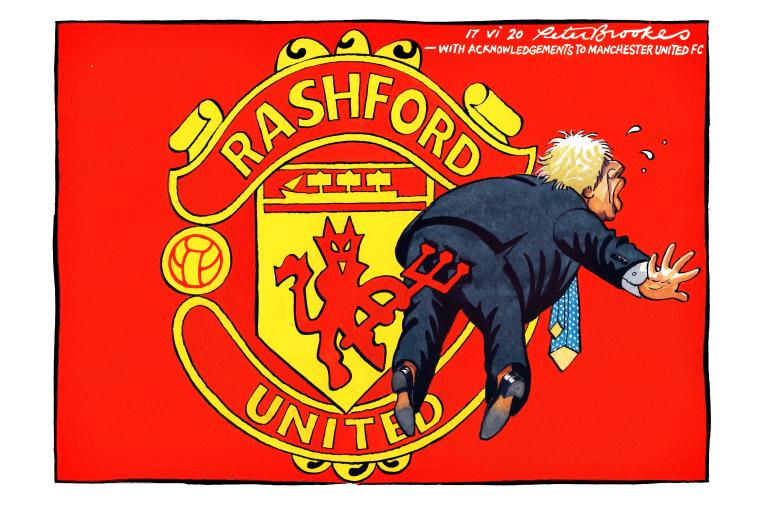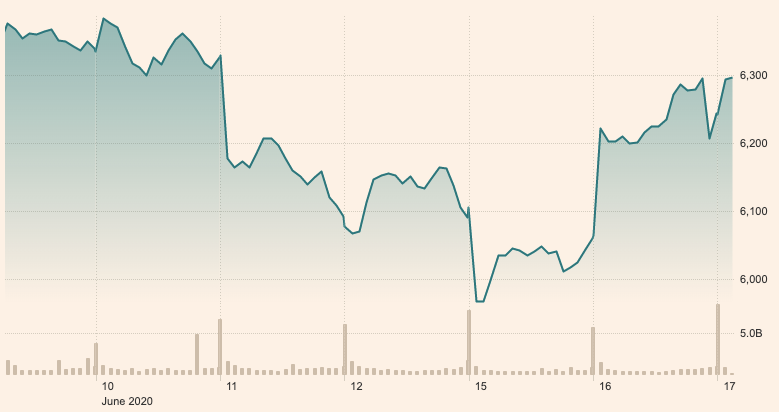- Charlotte Street Partners

- Jun 16, 2020
- 4 min read
The policymaker's dilemma
Written by Juan Palenzuela, Associate
Edited by David Gaffney, Partner
Good morning,
Those familiar with game theory have probably heard about the prisoner’s dilemma. In it, two convicts who cannot communicate with each other are interviewed by the authorities. If both of them cooperate and keep their mouths shut, they will receive a short sentence. If both speak against each other, both will be convicted for life. If one speaks and the other keeps schtum, however, the silent partner receives a life sentence while the snitch is set free.
In essence, the prisoner’s dilemma is a situation in which there is an incentive for individuals to make a choice that does not produce the optimal result for the group.
Policymakers may have this quandary in mind when designing exit strategies from the Covid pandemic. Rampant unemployment has health costs too, and this reality has already been reflected in some countries’ exit strategies, as they shift to relying more on face coverings while loosening social distancing measures. Doing so will help the economy to stutter back into life again, but it also brings some conundrums.
Rather than protecting the wearer, peer-reviewed studies have shown that face coverings reduce infection rates by decreasing the rate of infection from the users to others in their close vicinity. The larger the share of the population that uses face masks, therefore, the greater the impact that this will have on the overall infection rate.
But just as in the prisoner’s dilemma, people will have an individual incentive to cheat. If most people are already wearing face coverings, why do I need to bother using one?
In this case, official guidance may not be enough to compel people to do something that makes them uncomfortable or that they feel impinges upon their liberty. With the pressure to ease distancing and open the economy increasing every day, governments may feel it increasingly necessary to make the use of face coverings mandatory in certain public places, as is now the case on all public transport in England.
News
Manchester United footballer Marcus Rashford said during an interview with the BBC yesterday that he wants to continue raising awareness for those in need after his public campaign to get the free school meal voucher scheme extended proved successful. The campaign prompted a government U-turn on an issue that affects nearly 1.3 million children in England alone.
Beijing authorities raised the city’s four-tier Covid emergency response from level two to three last evening and residents were barred from non-essential travel after a cluster of new cases were discovered earlier this week. Flights have been cancelled, schools suspended and all residential compounds ordered to reinstate strict screening measures.
New Zealand’s prime minister Jacinda Ardern condemned the emergence of two new Covid-19 cases that arrived from Britain as a failure of the quarantine measures for new arrivals. “It should never have happened and it cannot be repeated,” Ardern said, as she announced that the country’s army would now participate in enforcing quarantine for new arrivals.
Business and economy
The Bank of England is expected to increase its quantitative easing programme by at least £100bn tomorrow, the Financial Times reports, as it struggles to maintain the relative stability of financial markets. The benchmark rate is also expected to remain unchanged at 0.1%.
Australia hopes to conclude a free trade deal with the UK soon following the start of formal talks today via video conference, Australia’s trade minister, Simon Birmingham, has said. Birmingham told theFinancial Times that negotiations could be wrapped up by the end of 2020.
Retail sales in the US rebounded by nearly 18% in the month of May according to new figures published yesterday, as the country continues its efforts to open up trading again. It was the biggest monthly gain on record, since 1992.
Columns of note
In the Financial Times, Leo Lewis argues that the two recent video game console launches by Microsoft and Sony are a display of where the companies are heading. This time around, both companies are pitching games that appeal across a wider spectrum of ages, gender and expected hours spent gaming, Lewis argues.
InThe Telegraph,Nick Clegg says that social media platforms, and Facebook in particular, have learned much from the experiences of 2016 and have been preparing accordingly for this year’s election in America.

Source: The Times
Markets
What happened yesterday?
Global equity markets edged higher yesterday primarily due to better than expected retail numbers in the US, news that Donald Trump is considering a $1trn infrastructure package, and the Federal Reserve’s announcement of a new corporate bond-buying programme.
In the US, the Dow Jones Industrial Average ended the session up 2.04% at 26,289.98, the S&P 500 added 1.9% to 3,124.74, and the Nasdaq Composite was 1.75% firmer at 9,895.87.
In Europe, the Stoxx 600 added 2.90% to 363.33, alongside a 3.39% advance for the German Dax to 12,315.66 while the FTSE Mibtel was up 3.46% at 19,625.63.
In London, the FTSE 100 ended the session up 2.94% at 6,242.79, and the FTSE 250 was 2.2% at 17,464.70.
What's happening today?
AGMs
Brave Bison Grp
Dominos
G4S
Icg Ent Trst
Life Settlemen
Pelatro Plc
Riverstone Energy
Rtc Grp.
Share
Stm Grp.
Uk Oil & Gas
Wentworth Res.
Finals
De La Rue
Severfield
Wincanton
Trading announcements
Dominos
Hill & Smith
Origin
UK Economic Announcements
(07:00) Consumer Price Index
(07:00) Producer Price Index
(07:00) Retail Price Index
Int. Economic Announcements
(10:00) Consumer Price Index (EU)
(12:00) MBA Mortgage Applications (US)
(13:30) Building Permits (US)
(13:30) Housing Starts (US)
(15:30) Crude Oil Inventories (US)

Source: FTSE 100, Financial Times
Did you know?
In the 1880s, a frustrated Harvard Observatory director would frequently tell his staff "my Scottish maid could do better". He went on to hire his maid, Williamina Fleming, who ran a team for decades, classified tens of thousands of stars, and discovered white dwarfs and the Horsehead Nebula.
Parliamentary highlights
House of Commons
Oral questions
Women and Equalities (including Topical Questions)
Prime Minister's Question Time
Urgent question
To ask the Secretary of State for Health and Social Care if he will make a statement on Coronavirus - Jonathan Ashworth
Legislation
Divorce, Dissolution And Separation Bill [Lords]: Committee and Remaining Stages
Adjournment
Provision of asylum seeker services in Glasgow during the covid-19 pandemic - Chris Stephens
House of Lords
Oral questions
Orders and regulations
Air Traffic Management (Amendment etc.) (EU Exit) Regulations 2020 - Baroness Vere of Norbiton
Legislation
Private International Law (Implementation of Agreements) Bill [HL] - Report stage - Lord Keen of Elie
Scottish Parliament
Parliamentary bureau motions
First minister questions
Ministerial Statement
Justice Sector Response, Recovery and Renewal
Mental Health – Transition and Recovery

Comments